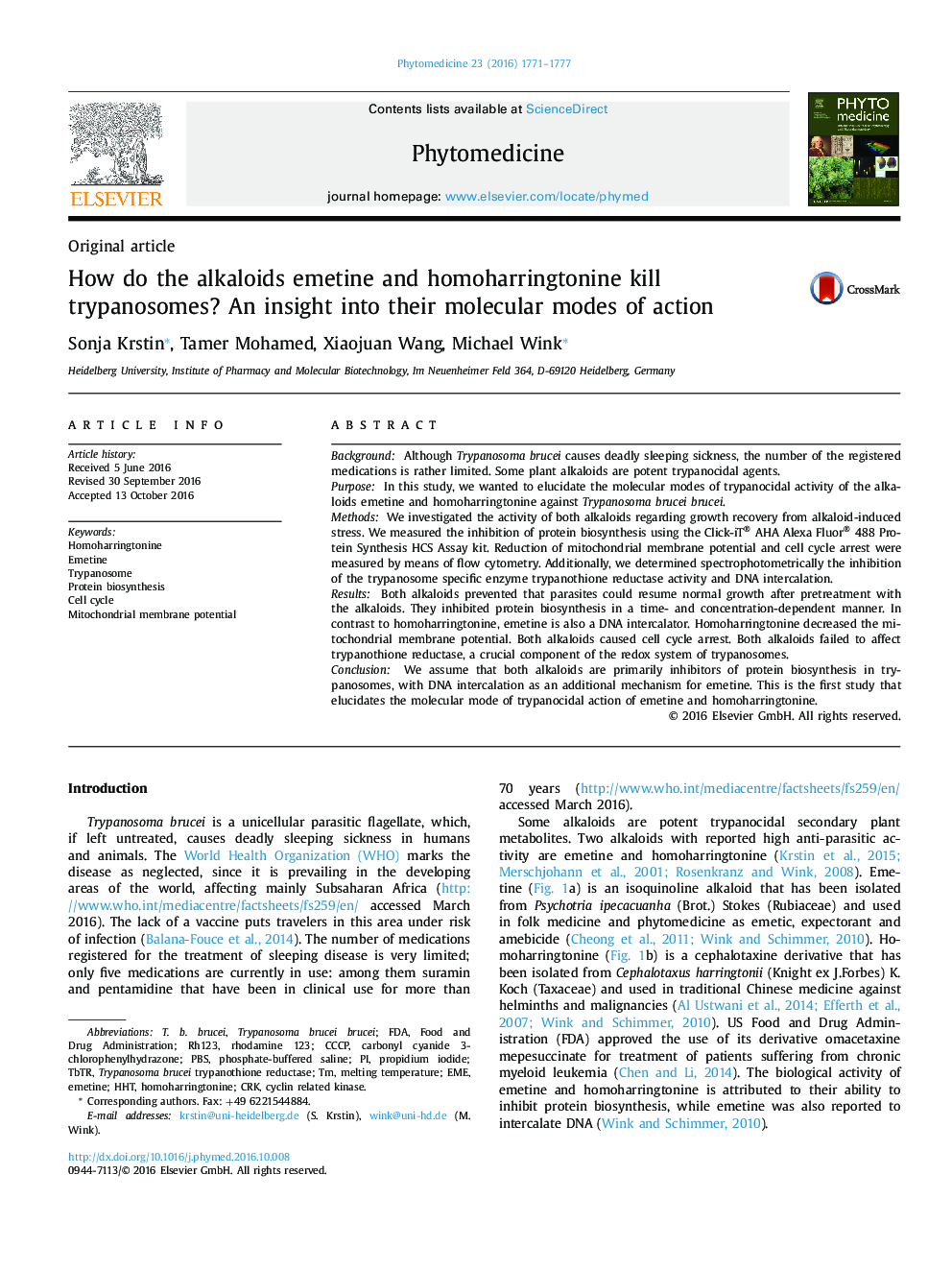| Article ID | Journal | Published Year | Pages | File Type |
|---|---|---|---|---|
| 5549479 | Phytomedicine | 2016 | 7 Pages |
BackgroundAlthough Trypanosoma brucei causes deadly sleeping sickness, the number of the registered medications is rather limited. Some plant alkaloids are potent trypanocidal agents.PurposeIn this study, we wanted to elucidate the molecular modes of trypanocidal activity of the alkaloids emetine and homoharringtonine against Trypanosoma brucei brucei.MethodsWe investigated the activity of both alkaloids regarding growth recovery from alkaloid-induced stress. We measured the inhibition of protein biosynthesis using the Click-iT® AHA Alexa Fluor® 488 Protein Synthesis HCS Assay kit. Reduction of mitochondrial membrane potential and cell cycle arrest were measured by means of flow cytometry. Additionally, we determined spectrophotometrically the inhibition of the trypanosome specific enzyme trypanothione reductase activity and DNA intercalation.ResultsBoth alkaloids prevented that parasites could resume normal growth after pretreatment with the alkaloids. They inhibited protein biosynthesis in a time- and concentration-dependent manner. In contrast to homoharringtonine, emetine is also a DNA intercalator. Homoharringtonine decreased the mitochondrial membrane potential. Both alkaloids caused cell cycle arrest. Both alkaloids failed to affect trypanothione reductase, a crucial component of the redox system of trypanosomes.ConclusionWe assume that both alkaloids are primarily inhibitors of protein biosynthesis in trypanosomes, with DNA intercalation as an additional mechanism for emetine. This is the first study that elucidates the molecular mode of trypanocidal action of emetine and homoharringtonine.
Graphical abstractDownload high-res image (119KB)Download full-size image
